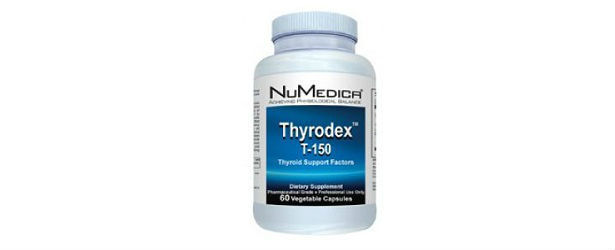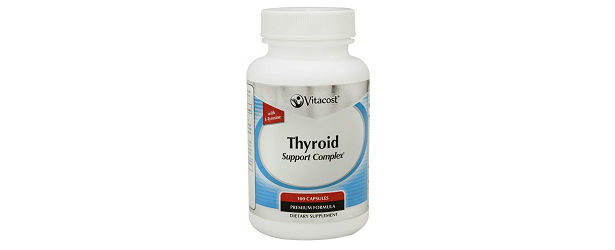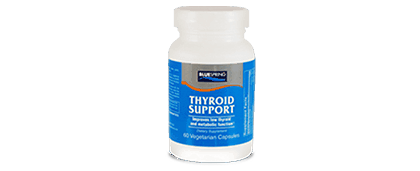
The Risks of Excessive Iodine
Hypothyroidism is an ailment in which the production of thyroid hormones is inadequate. This problem can be caused by a number of reasons, such as the excessive use of iodine in the diet. Excessive consumption of iodine can block the activity of thyroid glands. This is a very rare problem in developed countries. Nonetheless, hypothyroidism can become a grave issue, so if you ever notice an issue with the thyroid gland, consult a doctor as soon as possible.
Thyroid Gland And Iodine
Iodine is a micronutrient, required by our body in the trace amounts. Seventy to eighty percent of iodine resides in our thyroid glands. Iodine is vital for the proper output of the thyroid hormones, which in turn is essential for our development and growth. This production of hormones can be suppressed by increased intake of iodine in the diet. Hypothyroidism may result which has symptoms like constipation, weight gain, depression, brittle hair and nails, joint pain, dry skin, sensitivity to temperature changes and hoarseness of voice.
Risk Factors For Hypothyroidism
The recommended daily allowance for dietary iodine in 120 mcg to 150 mcg. Consuming iodine more than 150 mcg will make you prone to the development of hypothyroidism. In addition to this, a middle aged or older woman suffering from some kind of an autoimmune condition or receiving radioactive iodine as a treatment is extremely susceptible to this condition. Similarly, if you are given anti-thyroid medications for hyperthyroidism, you might develop hypothyroidism as a side effect. Sometimes pregnant females can also develop hypothyroidism. In extreme cases, decreased intake of dietary iodine can also develop into hypothyroidism, but this is very rare in developed countries like America.
Prevention And Treatment
For the treatment of hypothyroidism, your physician will prescribe you synthetic agents which mimic like thyroid hormones such as levothyroxine. Dosage of levothyroxine will be adjusted in relation to the severeness of the condition. If underlying cause of your hypothyroidism is excessive intake of dietary iodine then you can prevent recurrences and relapses by refraining from the use of iodine rich food items. For example you can stop using table salt, kelp, shellfish, cow’s milk, turkey breast, cod, baked potatoes, lima beans, summer squash, garlic and Swiss chard etc. You can seek advice from your doctor regarding the changes in your diet.
Keep In Mind
If not treated in time, hypothyroidism can take a grave course. You might develop symptoms such as puffy face, altered sensations of smell, a metallic taste in the mouth, burning sensation in the throat and mouth, thickening of the skin and a slowed speech pattern. In severe cases, you can even suffer from shortness of breath, fever, coughing, little or no urine output, shock and seizures. If you feel there is something wrong with your thyroid gland, consult your doctor as soon as possible. Tell him or her all of the details like what your normal iodine intake is and what symptoms you are suffering from. This will help him or her to plan out a proper treatment course for the cure of your disease.
TOP 5
THYROIDProducts |
|||||
| Thyraid | ThyroMend | Thyrene | SupraHealth | Blue Spring | |
|---|---|---|---|---|---|
| 1 | 2 | 3 | 4 | 5 | |
| Price (1 bottle) Price (6 bottles)best value |
$49.95 $139.80 |
$38.95 $233.70 |
$39.99 $159.96 |
$59.97 $323.84 |
$35.99 $194.35 |
| Overall Rating | 99.50% | 85.70% | 76.60% | 68% | 60.20% |
| Performance* |





|





|





|





|





|
| Speed of Results* | Extremely Fast | Good | Average | Average | Slow |
| Quality of Ingredients | Premium | Good | Good | Average | Average |
| Customer Satisfaction Evaluation | 99.20% | 84% | 74% | 68% | 60% |
| Safety Evaluation | Safe for Use | Safe for Use | Safe for Use | Safe for Use | Safe for Use |
| Customer Service Rating |





|





|





|





|





|
| Reorder Rate | Highest | Good | Good | Average | Average |
| Return Policy | Risk Free | Risk Free | Handling & Restocking Fee | Risk Free | Risk Free |
| Success Rate | 99.20% | 85% | 69.20% | 67.50% | 60% |

 Subscribe Now
Subscribe Now











